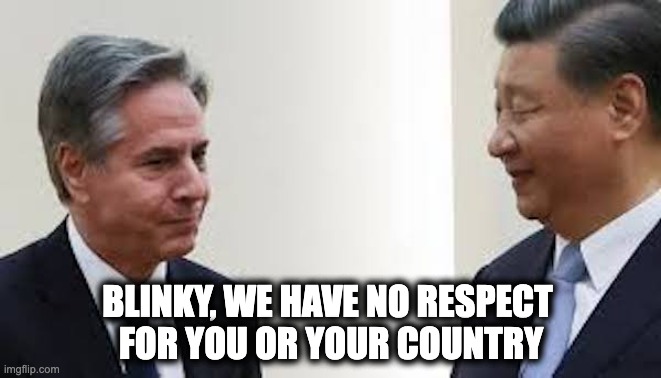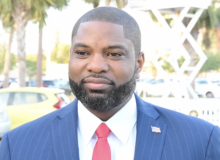Cruising through the media reports of Blinken in Beijing this morning revealed numerous viewpoints, all different. Some cheered the trip and the talks as “productive and candid.” Others say Blinken was taken advantage of. The trip was scheduled for just 48 hours, Sunday and Monday. Blinken was able to meet with Chinese President Xi during the trip. He did not get dumplings or cold noodles with sesame sauce to take home. But he did get something to put in the oven—Taiwan. Not supporting Taiwan’s independence has been U.S. policy since the Clinton administration. However, despite a denial, Blinken’s statement seemed to tell China the U.S. support of Taiwan was weakening.
CRSreport published a primer on the subject of the U.S. rejection of Taiwan’s independence:
In August 1995 President Clinton sent a secret letter to PRC President Jiang Zemin to state that the United States:
(1) would “oppose” Taiwan independence;
(2) would not support “two Chinas” or one China and one Taiwan.
(3) would not support Taiwan’s admission to the U.N
The opposition to Taiwan independence seemed to go beyond the promises made by former National Security Advisor Henry Kissinger and President Nixon in 1971 and 1972 of no U.S. support for Taiwan independence. Later, that wording was apparently changed from opposition to a neutral stance of non-support. This letter reportedly formed the basis of what were later known publicly as the “Three Noes.”
But Blinken’s statement seemed to say a lot more.
The Blinken in Beijing statement that will echo through history – “We do not support Taiwan’s independence.”
The U.S. and China conduct about $700 Billion in trade over one year. They manufacture many of the ingredients for our medications. They mine many minerals used for electric batteries when the U.S. is often barred from doing so on our own soil. Trying to “decouple” from China may be a desired goal, but because the two economies are so intertwined, that goal has to be done very slowly so it can be accomplished without destroying our economy.
“We remain committed to our One China Policy with the three communiques, the Taiwan Relations Act, the six assurances. We do not support Taiwan’s independence. We made it clear that we oppose any unilateral changes to the status quo by either side. We have been clear and consistent in our policy, and it’s very important that we preserve that status quo that has maintained peace and stability across the Strait for decades,” Blinken said.
“At the same time, we and many others have deep concerns about some of the provocative actions that China has taken in recent years going back to 2016. And the reason that this is a concern for so many countries, not just the United States, is that were there to be a crisis over Taiwan, the likelihood is that could produce an economic crisis that could affect quite literally the entire world,” he said. “Fifty percent of commercial container traffic goes through the Taiwan Strait every day. Seventy percent of semiconductors are manufactured in Taiwan. If as a result of a crisis that was taken offline, it would have dramatic consequences for virtually every country around the world.
“President Biden believes strongly that one of the successful aspects in our relationship with China going back five decades has been the responsible management of the Taiwan question. We continue to believe that’s essential,” Blinken added.” Fox
The fact that Blinken cited that in public in China may have been a signal to Taiwan that things are changing.
Blinken in Beijing seemed to be feeding the appeasement angle of diplomacy with China. Director Wang Yi spoke with Blinken and reportedly told him, “It is necessary to make a choice between dialogue and confrontation, cooperation or conflict.” Was that a thinly veiled threat?
Xi stated in part, “… It’s safe to say that interactions should always be based on mutual respect and sincerity. I hope that through this visit, Mr. Secretary, you will make more positive contributions to stabilizing China-U.S. relations.” (So they view our leadership as weak and not providing positive contributions. Great, they think like Americans).
Maybe the Secretary of State was nervous and just trying to put a positive spin on the meeting. The bottom line is Mr. Blinken did not seem to project strength. Dealing with a tough adversary is not the forte of a weak diplomat or a weak president. It must be done from a position of power, something that Joe Biden does not understand.
Written by Lidblog as an adaptation of a post appearing in Conservative Firing Line.






